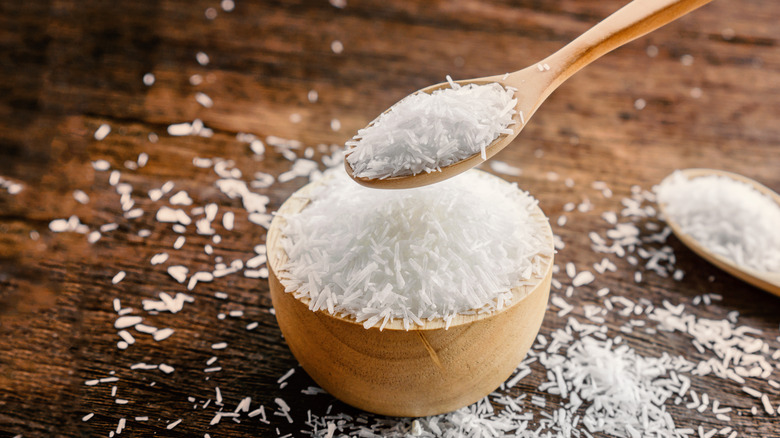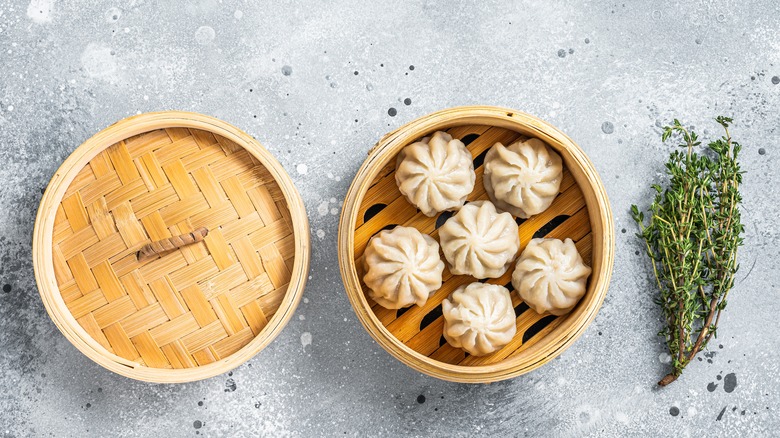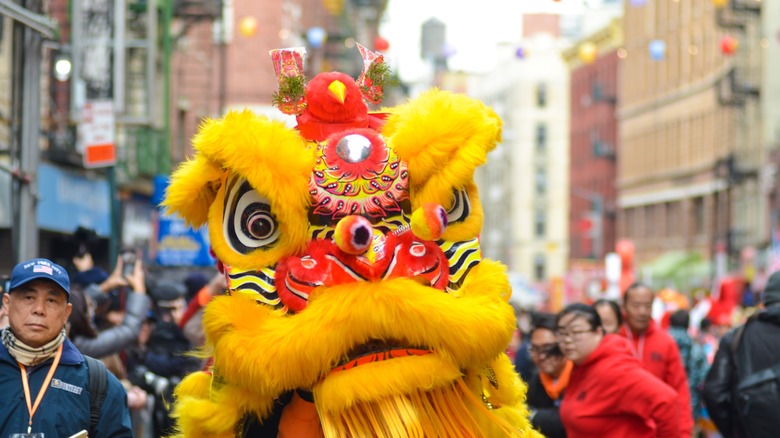Finally, The Stigma Around MSG Is Ending
Anyone who grew up in America during or after the 1980s is familiar with Chinese restaurant menus that proclaim, almost pleadingly, "NO MSG." During the latter half of the 20th century and even into the 21st, monosodium glutamate (MSG) was persona non-grata in public perception, widely reviled for its supposed health concerns. Except it wasn't true — the ingredient is safe.
Thankfully and belatedly, perceptions about MSG are finally changing. Despite decades of unfounded misconceptions, a market research firm called Mintel recently found that over the past half-decade, 75% of all social media posts about MSG were positive. In another clear shift in public perception, chefs are also beginning to advocate for the ingredient.
Merriam-Webster has even changed the definition of "Chinese Restaurant Syndrome" to indicate that the term is outdated and offensive. The MSG delusion appears to be on its last legs (finally) — but where did it come from in the first place?
The stigma against MSG was xenophobic from the beginning
First discovered in 1908 by a Japanese chemist named Ikeda Kikunae, MSG quickly became the premier flavor-enhancer for Pan-Asian cuisine. Nobody had a problem with it until 1968, when the New England Journal of Medicine published a letter from "Dr. Ho Man Kwok" (actually Dr. Howard Steel, writing under a very uncomfortable pseudonym) who claimed that after eating at Chinese restaurants, he suffered from heart palpitations, numbness, and limb weakness. The entire thing was fake (Steel made a bet with a friend he could get an obvious hoax into the journal), but it did real damage, creating essentially a mass hysteria in which Americans spent decades in fear of MSG over "Chinese Restaurant Syndrome."
So, why did it catch on? Was it simply fear of the "other?" Was it guilt over enjoying food from a Communist country during the height of the Cold War? It's difficult to say, but one thing is for sure: The idea MSG causes health issues is entirely and objectively false. Numerous studies have been conducted on the subject, and no link has been established between the ingredient and health concerns.
This is in addition to the fact MSG shows up in all sorts of other foods. It is not an opinion to say that MSG is not harmful; it is a verifiable fact. (And really, Americans should never have bought into the hysteria to begin with.)
The history of Chinese food in America is fraught
The history of Chinese immigration to America is a fraught one, so it's not entirely surprising that conflict might eventually extend to food. In 1882, in response to perceptions of Chinese immigrants taking American jobs on the West Coast, the U.S. passed the Chinese Exclusion Act, which specifically banned all to the United States from China for a decade. It remains the only instance in American history where a single group suffered a blanket ban on immigration.
What's interesting, though, is that despite widespread anti-Chinese racism in America during the 19th century, and despite the common historical difficulty of American eaters to adapt to "exotic" cuisines, Chinese food was popular almost from the beginning. White Americans were heading to Chinese restaurants in droves in California even a decade before the Civil War. Apparently, Chinese restaurants were particularly noted for their cleanliness standards during a time when American restaurants weren't. Restaurant health inspections didn't exist in America until 1934, when the FDA first created the "Restaurant Sanitation Program." Before then, cleanliness standards were entirely up to what the restaurant owners felt like doing.
Given Chinese cuisine's somewhat sudden rise in popularity despite its supposed "foreignness," it is perhaps unsurprising there was ultimately a xenophobic backlash against it based around entirely dubious claims, even if it occurred a century later. In 2023, however, most Americans are ready to leave such false and outdated beliefs behind.


